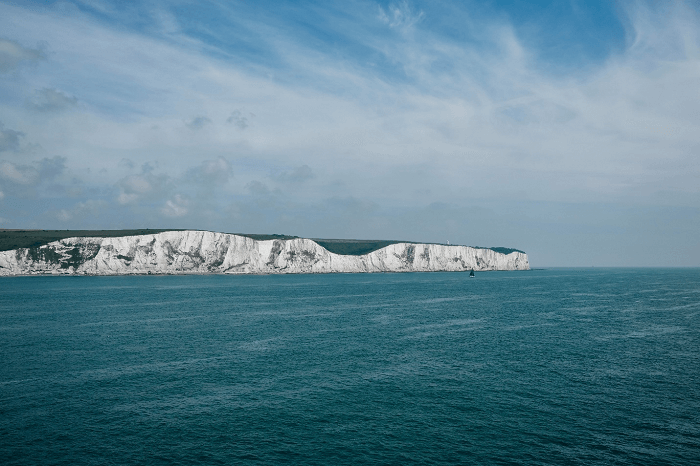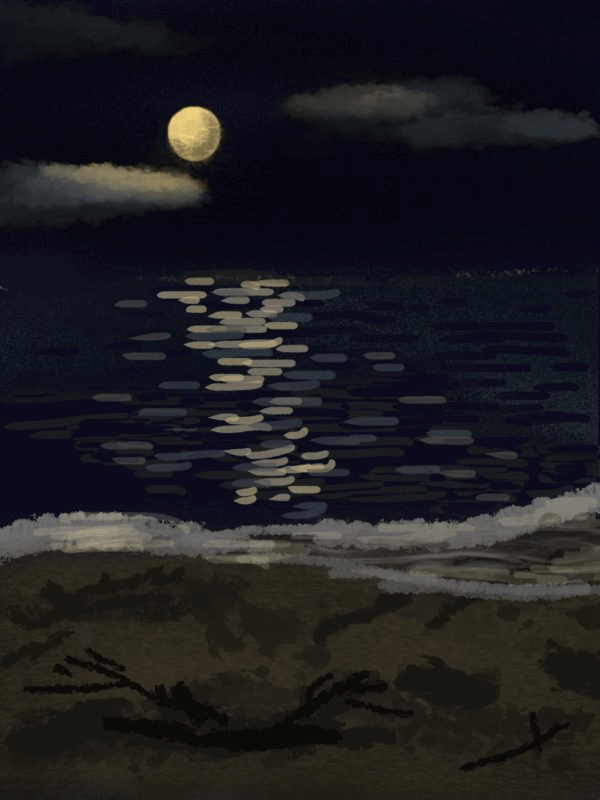Dover Beach Poem Summary and Analysis"Matthew Arnold," writes Dover Beach. He was the most famous writer and educator of the fantastic Victorian era. With the fall of Christianity, the poem expresses a crisis of faith. The Poet sees this crisis as the cause of the decline in the Tide of scientific discovery. In the 20th century, the crises of faith were often interpreted as a remarkably forward-looking culture, including Existentialism and Absurdism. 
SummaryFirst Stanza The poem's first line is romantic and peaceful, leading to simple language. The line is "The sea is calm tonight, " meaning everything is cool and calm. He strongly states the panorama view of the beach around him. So, the line he describes is that the Tide is full, and the moon is shining vibrantly, which directly means to say the shoreside. On the other side of the beach, the France coast is visible to the Poet, and he describes the lighting manner of the coast, i.e., the light from the coast is shining (glimmers) and in a twilight manner, like the twinkling of the stars. When the light from the coast disappears, the Poet sees the white-colored cliff looking white because of moonlight coming on that cliff, which Generates the light from the dark cliff to the white cliff from the shore of England. The Poet interacts with his wife and asks her to come to the window and enjoy the night. He then asked her wife that keep his mind on the edge where the sea meets the land's surface, and the land looks luminescent because of the moonlight falling on the land where the sea meets. Now in the next line, the Poet's mood changes drastically, and he experiences sorrow from coming from joy mood. The Poet says ("LISTEN!") to the harsh sound coming from pebbles in the sea when it is pulled from the sea, which is very unpleasant to the surroundings and is caused by strong waves in the sea, and pebbles returned to the seashore due to the tide return. Tide task is continuous, and the Poet also focuses on their pulsating movement. As described in the poem, the movement of the stones in the sea is "tremulous cadence slow, " meaning they are aghast in a slow harmonic motion. The pulsating sound of the poem mixes with the poem's nature. Describing the movement and the sound they are producing is not comfortable to the Poet and brings out a never-ending sound, i.e., sad. 
Second Stanza Stanza 2 starts concerning Sophocles, the culture of Victorians that refers to classical poets and writers in their work, and the Poet in the poem describes fully that the classical writers had already listened to the external note of sadness sitting on the shores of the Aegean. The water movement here is "the turbid ebb and flow." It also alludes to losing faith. Sophocles equated everlasting movement to human afflictions, which are equally never-ending. This is how he was able to write awful tragedies. According to the Poet, he may hear the same sound of sea sand and receding Tide sitting on the Northern Sea shore as Sophocles. Distant refers to the distance from Sophocles. In this context, 'We' alludes to the Poet and his wife, but in a larger sense, it refers to all humans. In this way, the Poet emphasizes the universality and duration of melancholy. Third Stanza The term in the poem Sea of Faith doesn't mean religion; this means that the term comes and binds the whole of humanity, but now according to the Poet, it has been declining and coming to an end. The declining faith in humanity leads the Poet to sadness and sorrow as the poem Poet writes as the night wind hovers over the sky, and the irony is that all the remaining people are subjected to stones that the tides caused by the earth have pulled out. The Poet creates a mixture of biological activities with human beliefs and faith. As the poem is written in the Victorian era, at that time, there was industrial development going on, leading to greediness and capitalism. According to the poem, the Sea of Faith that existed a long time ago vanished, so the Poet is talking about faith in the poem. Faith can be termed as humanity, religion, kindness, and sometimes spiritualism, but according to the poem, greediness ended the faith in humanity. So, in the poem's sense, the first stanza is termed Sea of Faith, which is calm and pleasant. But according to the Poet, suddenly, industrialization hits the peace and spiritual surroundings. So, the poem becomes symbolic because of the greediness of Naked Shingles, or bare. The scene of love and symbols also becomes a metaphor. 
Fourth Stanza The Feeling of Escapism is termed in para 4 as the idea of escape from reality; the Poet asks his beloved citizens to be true to him from the context of the given lines of stanza 4. The lines also related to the Sea of Faith; he meant he wanted to bring the belief back to the citizens. As the Poet described the world in stanza 1, which was like the Land of Dreams, now says that the same world has become hollow and dark. There is no joy, no love, nor light or peace. Now the citizens are on a "darkling plain," meaning the world has become dark and ugly. They hear the struggling sounds of people in a cold war. The sound is very unpleasant and nasty to hear. Here, the cold war can be referred to as the fight between opposing mindsets of the people, corruption of political powers, and bragging battles in youth. Thus, the Poet ends the poem with a terrible portrayal of Society during the Victorian age. 
Literary Devices
Next TopicGeography Lesson Summary Class 8 English
|
 For Videos Join Our Youtube Channel: Join Now
For Videos Join Our Youtube Channel: Join Now
Feedback
- Send your Feedback to [email protected]
Help Others, Please Share









